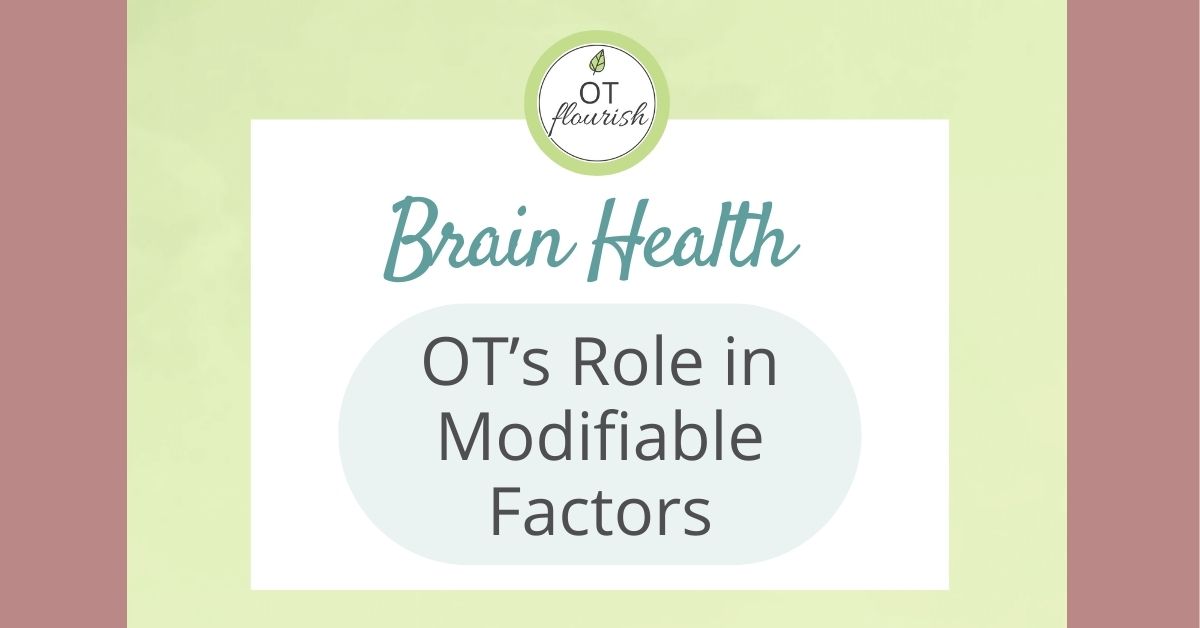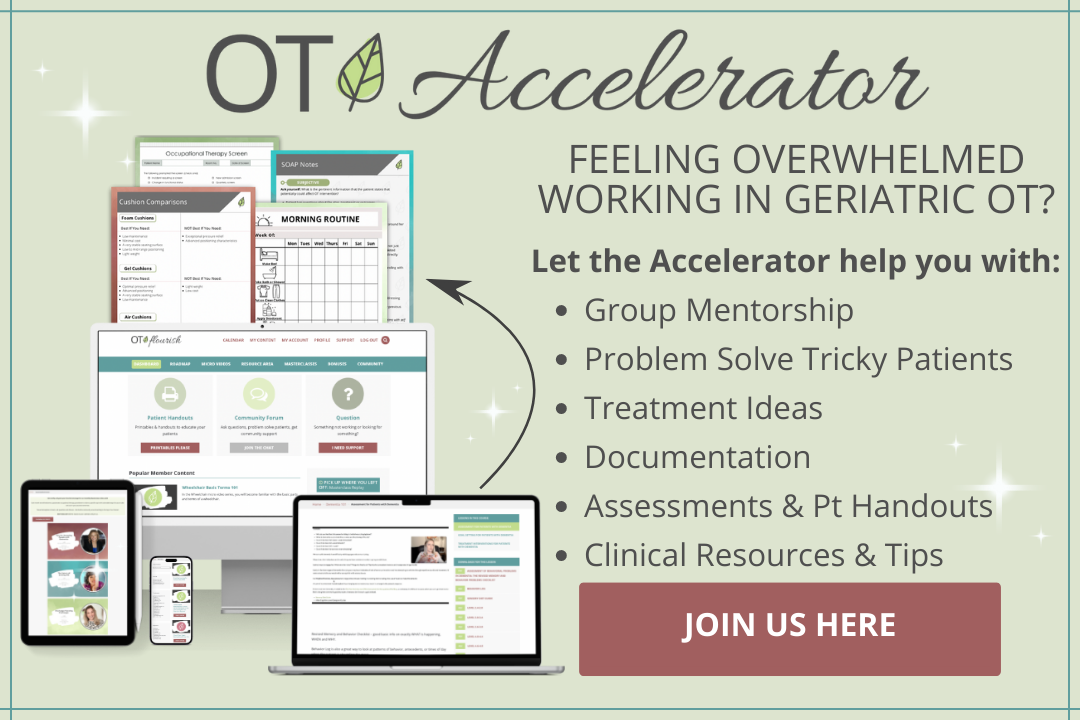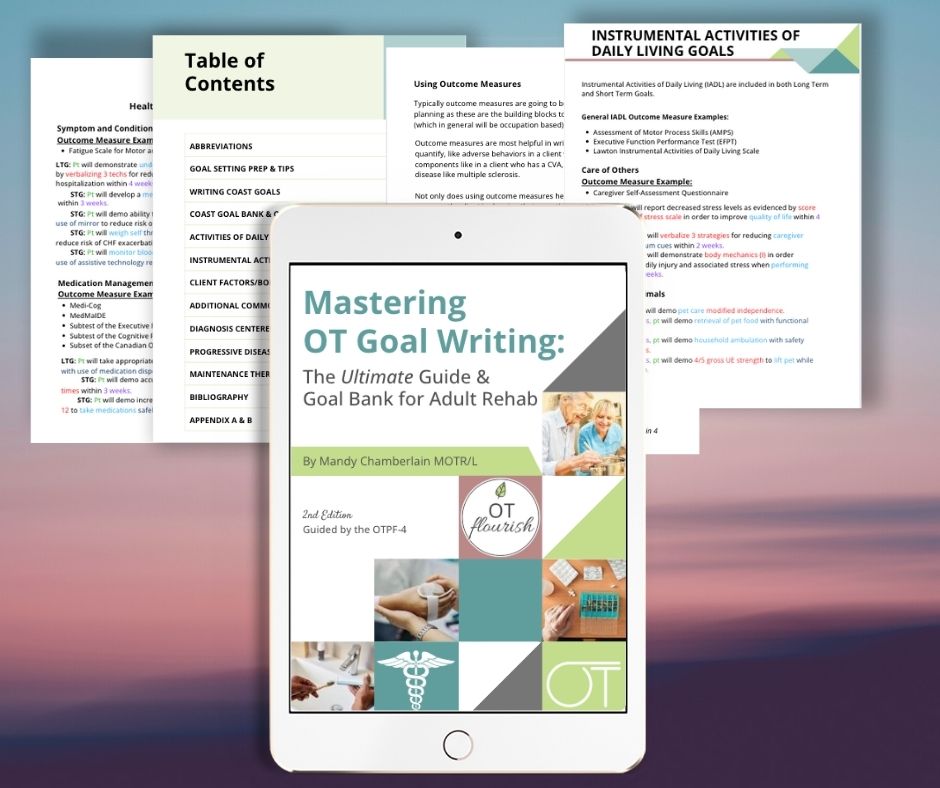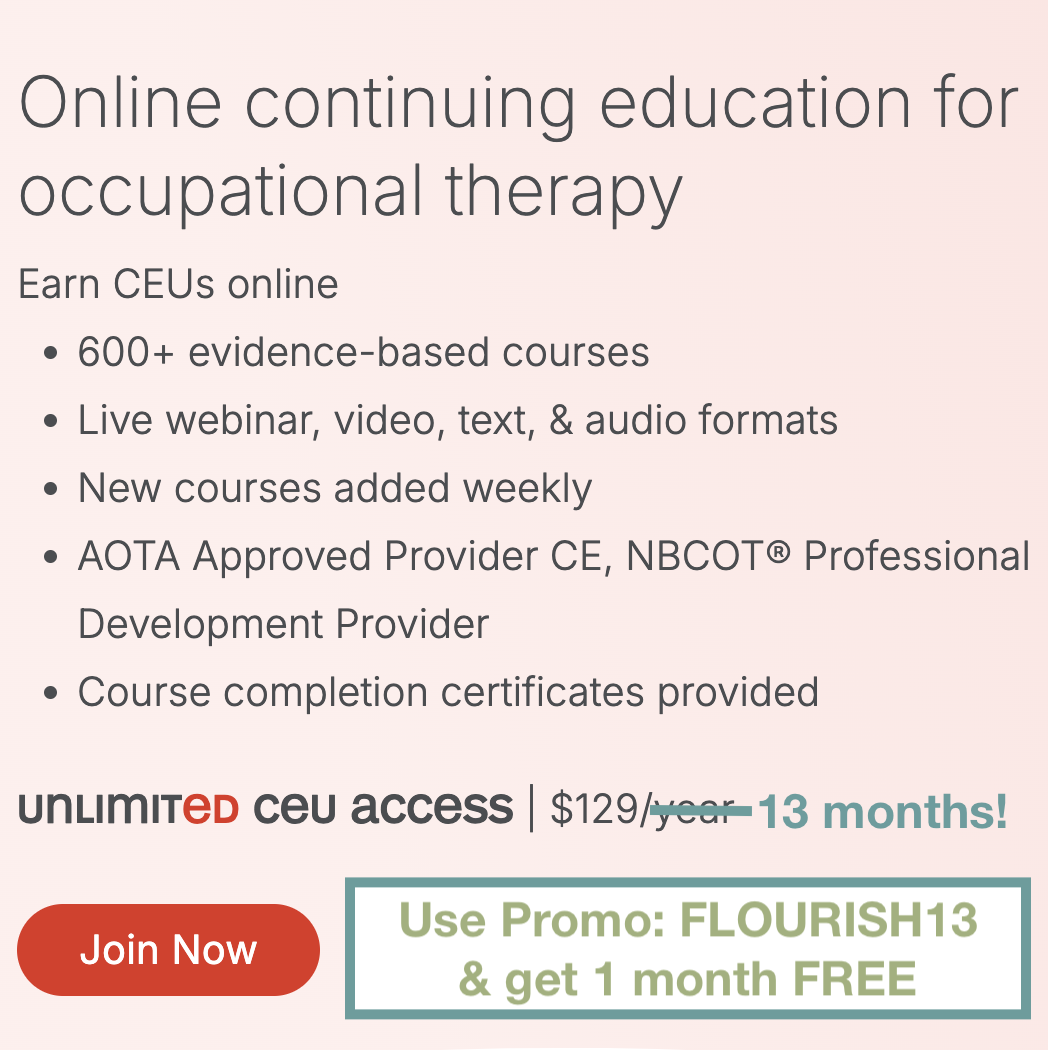Maybe a crossword puzzle, a handful of blueberries, or a brisk walk.
While these are all great for brain health, they are just a small part of a much bigger picture. As occupational therapy practitioners (OTPs), we have a unique superpower: we don’t just focus on a single piece of your well-being. We look at the whole you—your life, your habits, your passions. This is because we know that true brain health isn’t just about sharp memory; it’s about living a life that keeps your brain engaged, nourished, and happy.
In a world with a large and growing aging population, this holistic approach is more important than ever. So, how can I make my brain healthier? Let’s dig into how we, as OTPs, can tap into this magic to help our clients and even ourselves.
Listen in to the entire conversation on this topic here:
The Modifiable Game-Changers for Brain Health 🕹️
A recent report from The Lancet says the definition of brain health is “a state of functioning that allows a person to be a good decision-maker, to have a sense of purpose, to be able to have positive relationships and experiences, and to be able to be resilient through challenges and changes.”
This report identified 14 modifiable risk factors that impact how our brains age. Think of these as the building blocks of a healthy brain. While some might seem a bit out of your control, like air quality, many are right in our wheelhouse as OTPs. We’re talking about things like physical activity, nutrition, social connection, sleep, chronic stress, and managing unmanaged chronic conditions. Our job is to help people understand that changes in brain health aren’t just about their genes. There’s so much they can do to delay or reduce symptoms. And we get to do it in the most personal way, using our therapeutic rapport to help them find what works for them.
How to Make Your Brain Healthier
-
Beyond Brain Games: Functional Cognition in Action 👩🍳🎨
When people think of cognitive engagement, they often go straight to “brain games.” And while those are fine, they only work on a small, specific part of your brain. What we’re really after is building cognitive reserve. This is like creating alternate routes in your brain so if one road gets closed off (due to brain changes), you have other ways to get where you need to go. The answer to how to make your brain health better is by making cognitive work purposeful and relevant.
Think about it: if someone loves to bake but struggles with visual-spatial skills, we can turn baking a cake into a therapeutic activity. We can work on measuring ingredients and organizing cabinets—all while doing something they love!
The key is that it has to have a purpose. If it feels like a chore, they’re not going to do it. Just like I’m not going to get on a treadmill every day when I can get the same cardiovascular benefits (and more joy!) from a Zumba class.
This is where our creativity shines.
In a home health setting, for example, we can address so many of these modifiable factors at once. We can help a client who’s sedentary find a way to move that feels good to them, whether it’s seated tap dance or a gentle YouTube yoga class. The goal isn’t perfection; it’s progress. We’re helping them reroute their brain, one meaningful step at a time, to improve their brain health.
-
From Prescribing to Partnering: The Art of Habit Stacking 🤝
One of the biggest mistakes we can make as therapists is giving our clients a giant list of things they should do. Let’s be real, nobody’s going to follow a three-page home exercise program. As creatures of habit, we need to meet people where they are. This is where the magic of habit stacking comes in. It’s all about adding a new activity to an existing routine. For a client who watches a lot of TV, maybe we suggest they do a few leg pumps during commercials. It’s a small, manageable change that doesn’t feel overwhelming.
And this goes for everything, not just exercise. When it comes to nutrition, it’s not about telling a client they can’t eat their favorite foods anymore.
It’s about asking: “Can we go from 15 tortillas a day to 10?” or “What about switching from canned to frozen vegetables to cut down on sodium?”
This approach honors their autonomy and makes them a partner in their own journey to better brain health. It’s about being realistic, not rigid. Because if it’s not realistic, they’re just going to tell you they did it, and we both know that’s not helping anyone.
-
The Silent Superpower: Sleep 💤
We know that our bodies heal when we sleep, but did you know that your brain also uses this time to clear out its “junk” and consolidate memories? Recent research shows that adults 65 and older who sleep five hours or less a night are twice as likely to have a dementia. This is because a lack of quality sleep prevents your brain from doing its essential reboot.
As OTPs, we can play a huge role in helping our clients with sleep hygiene, which is a key pillar of brain health. We’re experts at looking at their habits and routines.
- Are they scrolling on their phone before bed, exposing themselves to blue light?
- Do they have a noisy environment or need to get up to use the bathroom frequently?
- We can help them adapt their routines, like using night lights instead of flipping on a bright bathroom light?
But it’s also about knowing when to refer. If a client is doing all the right things like sleep hygiene, but still not sleeping, it might be time for a sleep study to rule out issues like sleep apnea or chronic stress.
-
The Human Connection: Combatting Loneliness 🫂
Social isolation is a huge risk factor for cognitive decline. We are wired for connection. But social engagement isn’t a one-size-fits-all solution for better brain health. As OTs, we have to recognize that not everyone wants to be at a bustling senior center. A person’s social battery might get charged by going to a coffee shop with one friend, or by a weekly FaceTime call with a family member. It’s our job to find what is truly meaningful to them.
I’ve had a patient who was shy and didn’t want to participate in a group Bible study, but she was willing to listen in online. After a few weeks, she felt comfortable enough to start participating.
It’s about those small, gentle steps.
We have to look between the lines and hear what people aren’t saying. That’s our superpower—understanding their unspoken needs, whether it’s chronic foot pain masked as a dislike for socks or a deeper sadness hiding behind “I don’t care.” This is vital for maintaining brain health.
The Takeaway for Practitioners ✨
So, what’s the most important thing you can take away from all this? First, always make it relevant and meaningful. We don’t want to be bossy or use scare tactics. The goal is to empower our clients to make their own decisions about their brain health. When you work with a person, not for them, the buy-in is so much stronger.
And remember, you can’t pour from an empty cup. Our own brain health matters, too. Use these modifiable risk factors in your own life.
Be the example.
When a client sees that you’re also working on your sleep or stress management, it builds a level of trust that no textbook can teach. You’re not just a clinician; you’re a partner on their journey to living their best, most brain health-conscious life.





